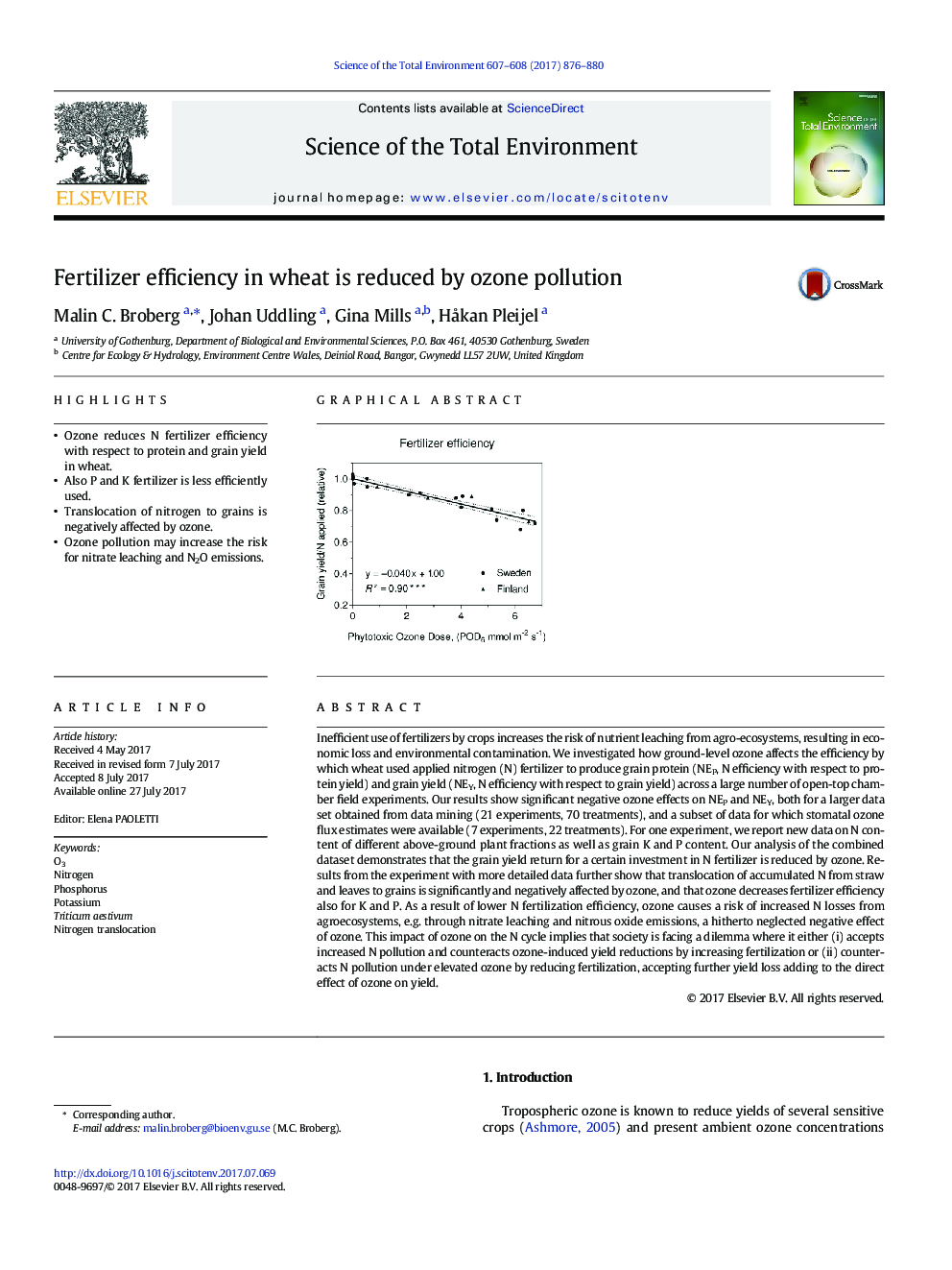| کد مقاله | کد نشریه | سال انتشار | مقاله انگلیسی | نسخه تمام متن |
|---|---|---|---|---|
| 5750045 | 1619694 | 2017 | 5 صفحه PDF | دانلود رایگان |
- Ozone reduces N fertilizer efficiency with respect to protein and grain yield in wheat.
- Also P and K fertilizer is less efficiently used.
- Translocation of nitrogen to grains is negatively affected by ozone.
- Ozone pollution may increase the risk for nitrate leaching and N2O emissions.
Inefficient use of fertilizers by crops increases the risk of nutrient leaching from agro-ecosystems, resulting in economic loss and environmental contamination. We investigated how ground-level ozone affects the efficiency by which wheat used applied nitrogen (N) fertilizer to produce grain protein (NEP, N efficiency with respect to protein yield) and grain yield (NEY, N efficiency with respect to grain yield) across a large number of open-top chamber field experiments. Our results show significant negative ozone effects on NEP and NEY, both for a larger data set obtained from data mining (21 experiments, 70 treatments), and a subset of data for which stomatal ozone flux estimates were available (7 experiments, 22 treatments). For one experiment, we report new data on N content of different above-ground plant fractions as well as grain K and P content. Our analysis of the combined dataset demonstrates that the grain yield return for a certain investment in N fertilizer is reduced by ozone. Results from the experiment with more detailed data further show that translocation of accumulated N from straw and leaves to grains is significantly and negatively affected by ozone, and that ozone decreases fertilizer efficiency also for K and P. As a result of lower N fertilization efficiency, ozone causes a risk of increased N losses from agroecosystems, e.g. through nitrate leaching and nitrous oxide emissions, a hitherto neglected negative effect of ozone. This impact of ozone on the N cycle implies that society is facing a dilemma where it either (i) accepts increased N pollution and counteracts ozone-induced yield reductions by increasing fertilization or (ii) counteracts N pollution under elevated ozone by reducing fertilization, accepting further yield loss adding to the direct effect of ozone on yield.
93
Journal: Science of The Total Environment - Volumes 607â608, 31 December 2017, Pages 876-880
